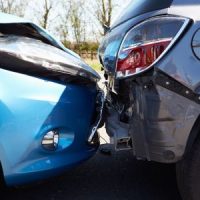Comparative Fault In Florida Car Accidents

Car accidents are all too common on Florida roads, and while there are any number of potential causes, it is generally true that far too many injuries and fatalities occur as a result of other drivers’ negligence. If you have been injured in a car accident that was caused by someone else’s negligence, you have the right to file suit against the person who allegedly caused your injuries – but many choose not to, often out of a misplaced belief that they will not recover because they played some role in causing their own injuries. In reality, you may still be able to recover, especially with an experienced attorney on your side.
Contributory vs Comparative Negligence
Not every accident case is so clear-cut as to have a totally innocent plaintiff and a totally guilty defendant. With many situations, the plaintiff does bear some kind of fault for the accident, if not for their own injuries – but under Florida’s civil law system, plaintiffs are not barred from recovery even if they are partially liable. This system is known as a comparative fault or comparative negligence system, while in other states, a system called contributory negligence is used.
Only a small handful of states still use contributory negligence, partially because of its relatively unforgiving nature. In states like Maryland, if someone is ruled to be even 1 percent liable for their own injuries, they are barred completely from any kind of monetary recovery. This is not the case in Florida; rather, if a plaintiff is ruled to be partially liable for their own injuries, they can still recover damages, minus their percentage of fault. So, for example, if a plaintiff is ruled 10 percent liable for their own injuries, they might still be able to recover 90 percent of their damages.
Potential Pitfalls Still Exist
If you decide to file suit against the driver who allegedly caused your injuries, be aware that even though your own comparative fault may not bar your recovery, there are other issues that may pose some problems. For example, Florida has a no-fault auto insurance system, which means that (1) every driver must carry at least $10,000 of personal injury protection insurance and $10,000 of property damage liability insurance; and (2) if your injuries do not meet the law’s “serious injury threshold,” you may not file suit against the defendant. Rather, you would have to file an insurance claim with your PIP insurer for your bills.
If your injuries reach what state law calls a “serious injury threshold,” however, you have the right to file suit in the same way as with any other cause of action. Some may not see a difference between filing an insurance claim versus filing a lawsuit, but the difference matters because with an insurance claim, you cannot seek damages for what are known as non-economic causes (intangible losses like pain and suffering or loss of quality of life). These losses can add up, and if it is possible to file suit and seek them, it is better to do so.
Contact A Tampa Auto Accident Lawyer
After you have been injured in a car crash, it can feel too overwhelming to contemplate seeking money damages for the harm you suffered. If you have questions or concerns about your injuries after a vehicle crash, a Tampa car accident lawyer from the Rinaldo Law Group may be able to help get them managed. We are ready to try and assist you – call us today for a free consultation.
Resource:
leg.state.fl.us/statutes/index.cfm?App_mode=Display_Statute&URL=0700-0799/0768/Sections/0768.81.html
